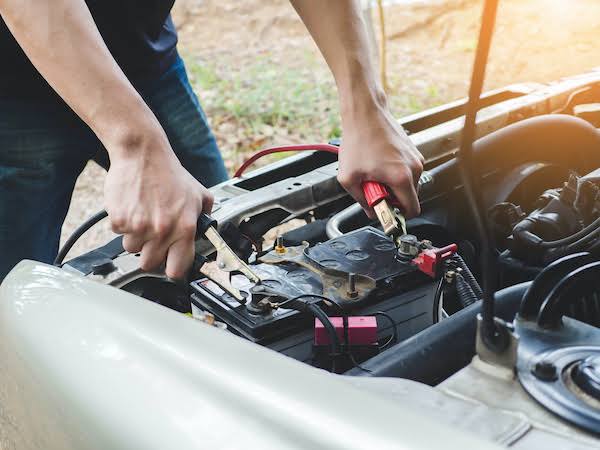Will Touching the Negative and Positive Terminals Kill You?

When dealing with car batteries or any electrical systems, safety should always be a top priority. One common concern people have is whether touching the negative and positive terminals of a battery can be dangerous, even life-threatening. Let’s explore what can happen in this situation and how to stay safe around electrical systems.
Understanding the Car Battery and Its Terminals
A typical car battery has two terminals:
- Positive Terminal (Marked with a “+”): The positive terminal is where the electrical current flows from the battery into the car’s electrical system.
- Negative Terminal (Marked with a “-”): The negative terminal is the return path for the electrical current and is typically connected to the vehicle’s chassis or ground.
What Happens If You Touch Both Terminals?
1. Car Battery Voltage
A car battery usually provides around 12 volts of electricity. While this voltage is sufficient to power your car’s electrical components, it is not generally enough to cause a fatal electric shock under normal circumstances.
When you touch both the positive and negative terminals, you would essentially create a short circuit. However, the voltage itself is not high enough to deliver a deadly shock, as the human body typically requires a higher voltage to cause serious harm, usually over 100 volts.
2. The Risk of Short Circuits and Sparks
The real danger comes from the short circuit created when you touch both terminals. This can cause the following:
- Sparks: The moment you connect the two terminals, you may witness sparks, especially if there’s a significant electrical draw or if the battery is being charged.
- Burns: If a short circuit occurs, it can lead to heat buildup and even cause burns, particularly if there are any exposed wires or tools involved.
- Explosion Risk: In extreme cases, creating a short circuit with a car battery can generate heat and cause hydrogen gas (which is flammable) to build up, leading to a risk of explosion. While rare, this is a real hazard, especially if the battery is being charged or is old.
Can Touching Both Terminals Kill You?
In general, touching the positive and negative terminals of a car battery won’t kill you. However, there are still some risks:
- Electrocution Risk: While the voltage itself isn’t high enough to be lethal, there’s always a possibility of electrical burns if your body completes the circuit for a prolonged period.
- Explosion Risk: If a spark is created near the battery while it’s charging, there’s a small chance of igniting the hydrogen gas inside, which could lead to a dangerous explosion. The explosion itself could cause serious injuries.
However, it’s important to note that under normal circumstances, the risk of death from just touching the terminals is very low, as the voltage is not high enough to cause fatal electric shocks.
What to Do to Stay Safe
While the risk of death is minimal, it’s still important to handle car batteries carefully. Here are some safety tips:
1. Avoid Creating a Short Circuit
Never allow metal objects like wrenches or tools to touch both terminals at the same time. This can cause a short circuit, leading to sparks, burns, and potentially damaging the battery.
2. Use Protective Gear
When working with car batteries, wear safety gloves and goggles to protect your skin and eyes from potential acid spills or sparks.
3. Work in a Well-Ventilated Area
Since car batteries can release hydrogen gas, ensure you are in a well-ventilated area to minimize the risk of an explosion.
4. Disconnect the Battery Properly
When working on a car’s electrical system, always disconnect the battery carefully. It’s typically recommended to start with the negative terminal to avoid sparks or accidents.
Conclusion
Touching both the positive and negative terminals of a car battery is unlikely to kill you, as the voltage is not high enough to cause a fatal electric shock. However, there are risks involved, such as sparks, burns, and the potential for an explosion if the hydrogen gas in the battery ignites. Always handle car batteries with care, take proper precautions, and avoid creating a short circuit to ensure your safety.
By following basic safety measures, you can work with your car’s electrical system safely and minimize the risk of accidents.





